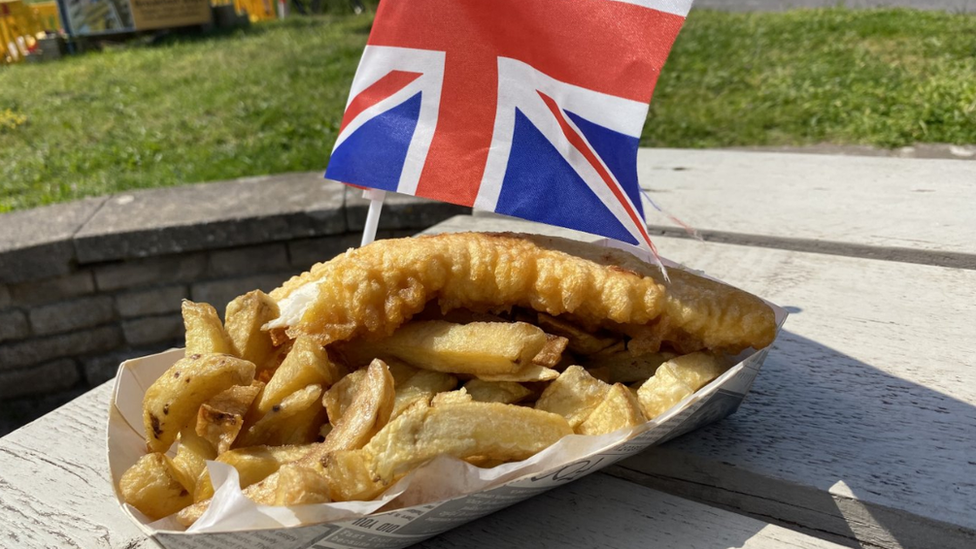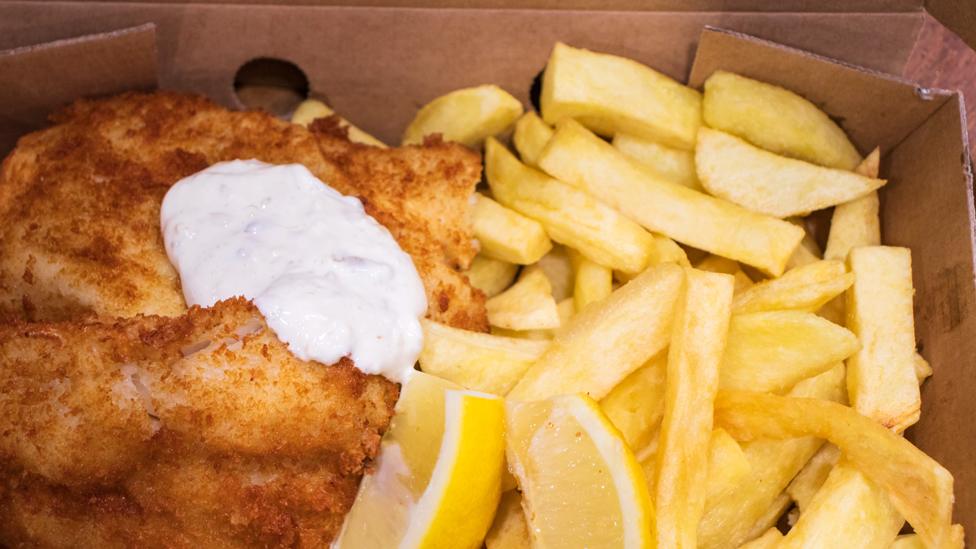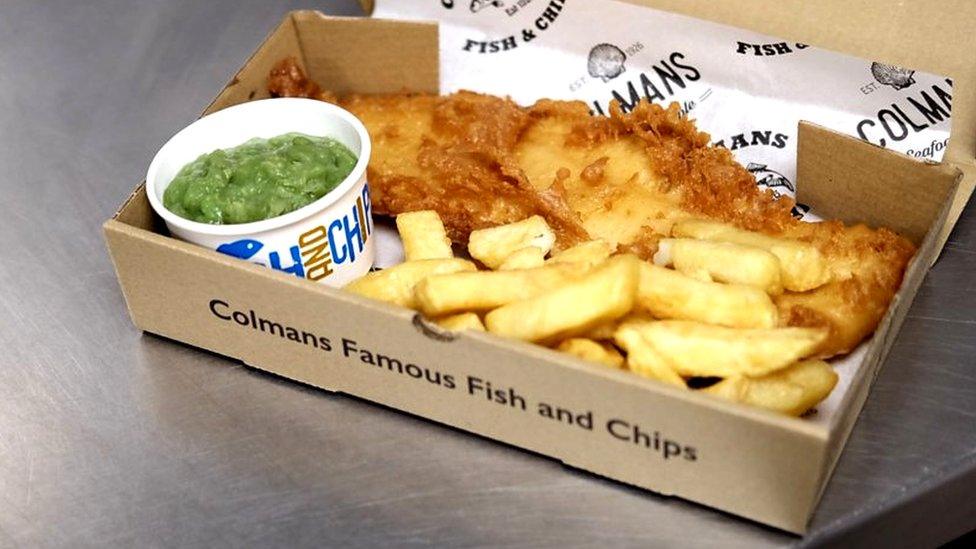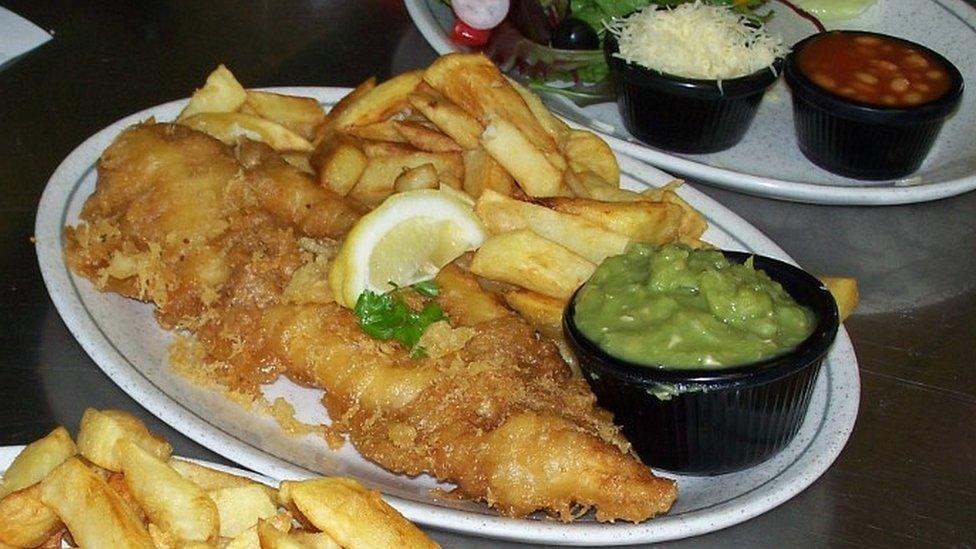Surge in fish and chips price 'not profiteering', association says
- Published

The price of fish and chips is surging due to soaring costs, the National Federation of Fish Friers says
The price of fish and chip takeaways has increased by 19% but it has nothing to do with profiteering, the National Federation of Fish Friers (NFFF) says.
In Somerset a portion of fish and chips can cost as much as £14 - the UK average is £9 according to the ONS, external.
Factors including the cost of living crisis mean outlets are raising prices in order to survive, NFFF said.
Stuart Devine, area director for the NFFF, said fish and chip shops were facing "a perfect storm".
In the year to March 2023 the price of takeaways rose by 13% in the UK and fish and chip meals saw the highest increase of 19%, representing a rise of about £1.44 to £9 on average for one portion, the Office for National Statistics said.
Mr Devine said food inflation, energy and fuel costs, as well as Russia's invasion of Ukraine, had driven up the cost of ingredients and the power to cook them.
"Cost are soaring. You either put your prices up or you risk going out of business," Mr Devine said.
"There's no profiteering happening in fish and chip shops.
"I run six fish and chip shops, employing 150 people, and we are finding it very tough.
"Small, independent fish and chip shops may survive because their overhead costs are less, but it really is at a critical point."
Fish from Norway
Steve Gibbs, who runs Howards Fish and Chip Shop in Taunton, said he feared rising prices would deter customers.
"It's the price of cooking oil. Then Brexit and the war in Ukraine because most of the fish comes from Russia. So now the fish is Norwegian.
"It's just so expensive. We have to pass [on the costs] to customers."
But his wife and co-owner Sue said fish and chips were still good value and added: "We try not to put our prices up if we can help it."

In Somerset, two portions of fish and chips can cost £28
In a statement, the Department for Environment, Food and Rural Affairs said: "We recognise that many businesses are struggling with the impact of higher prices, which is why we remain committed to our plan to halve inflation this year.
"That's why we have held down non-domestic energy bills, slashed business rates bills by 75% and recently set out a range of policies that will bring over 100,000 people into the labour market - ensuring businesses have access to the skills they need."

Follow BBC West on Facebook, external, Twitter, external and Instagram, external. Send your story ideas to: bristol@bbc.co.uk, external
Related topics
- Published9 June 2022

- Published17 March 2022

- Published8 June 2016
